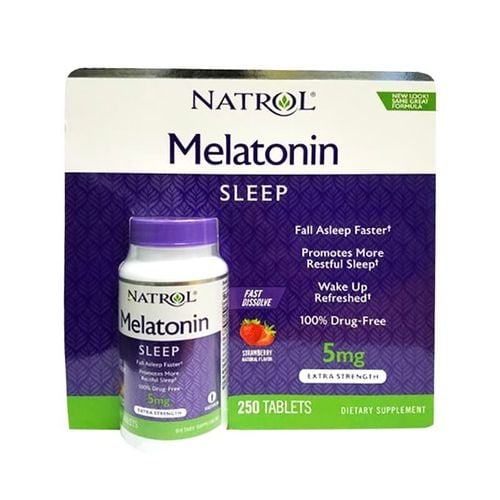This is an automatically translated article.
When thinking about algae oil, people often think of algae that grow in rivers and lakes. However, some types of marine algae are grown in the laboratory for the purpose of obtaining oil. Algae oil is a great plant-based alternative for those who don't eat seafood or may be intolerant to fish oil.1. Nutrients in Algae Oil
Some species of microalgae are particularly rich in two main types of omega-3 fatty acids, eicosapentaenoic acid (EPA) and docosahexaenoic acid (DHA). One study found that the ratio of omega-3s in microalgae was comparable to that of fish.However, unlike fish, humans can easily intervene to increase the amount of omega-3 in algae by changing factors such as the algae's exposure to UV light, oxygen, sodium, glucose, and temperature. . Algae oil is extracted, refined and used in a variety of ways to enrich animal meat, poultry and fish feed. Omega-3 fortified egg, chicken or salmon products are available on the market, most of which comes from algae oil. Plus, this oil serves as a source of omega-3s in baby formula and other foods.
2. Omega-3 in Algae Oil
Omega-3 fatty acids are unsaturated fats found in plants and fish that provide essential fats that the body cannot make on its own. Omega 3s exist in several different forms, but most research focuses on the three common ones EPA, DHA, and alpha-linolenic acid (ALA).ALA is known as a radical fatty acid because the body can make EPA and DHA from this compound. However, this process is not always effective, so all three compounds should be obtained from the diet. Omega-3s are important for the structure and function of cells throughout the body. Moreover, the eyes and brain are the two organs that need especially high levels of DHA. Omega 3 also has the ability to regulate inflammation and support various parts of the body, including the cardiovascular system and the immune system.
ALA is found mainly in fatty foods of plant origin. The best food sources include flaxseeds and their oils, chia seeds, walnuts, canola oil, and soybean oil. Both EPA and DHA are found in fish and marine foods. Herring, salmon, anchovies, sardines and other oily fish are the richest nutritional sources of these fats. Seaweed and algae also provide EPA and DHA. Some types of oil-producing fish derive their oil by eating microalgae. Therefore, in fact, algae is the main source of omega-3 fats in fish
3. Is algae oil different from fish oil?

Đối với tảo, các nhà khoa học có thể chọn chủng loại và phát triển một số chủng có hàm lượng omega-3 cao hơn
For algae, scientists can select strains and develop some strains with higher omega-3 content. Since algae grow quickly and are unaffected by fishing, they are a more sustainable source than fish oil. Furthermore, with its ease of control and intervention, the potential for toxicity in algal oil is significantly less than in fish oil. In terms of flavor, algae oil is also easier to use than fish oil and easier to digest because of its neutrality from plants.
4. Health Benefits of Algae Oil
Research shows that people with high reserves of omega-3 fats have a lower risk of certain health conditions. Although these studies are proven in people who get their Omega 3 sources from eating fish directly instead of using supplements. However, evidence suggests that the effects of supplements have similar results. Most studies use fish oil rather than algae oil. Even so, studies using algal oil showed a significant increase in blood levels of DHA, comparable to fish oil and similar results.4.1 Heart Support Omega-3 supplements work to lower blood pressure and improve blood vessel function, which may reduce the risk of heart attack or stroke. Studies using DHA-rich algae oils have demonstrated that taking 1,000 to 1,200 mg per day reduces triglyceride levels by up to 25% and improves cholesterol levels. Additionally, a recent review of 13 clinical trials in more than 127,000 people found that taking omega-3 supplements from a variety of sources reduced the risk of heart attack and all cardiovascular diseases as well as lower rates of heart disease. mortality from this disease.
4.2 Reduce Stress In fact, people diagnosed with depression often have low blood levels of EPA and DHA. One study that included more than 150,000 people found that those who ate the most fish had a lower risk of depression. This may be partly due to a higher intake of omega-3s. People with depression who take EPA and DHA supplements often notice an improvement in their symptoms. Results in 35 studies involving 6665 people demonstrated the antidepressant effects of EPA and DHA.
4.3 Vision Aid

Việc bổ sung omega-3 có thể giảm thiểu các triệu chứng của việc khô mỏi mắt bằng cách giảm tốc độ bay hơi nước mắt
In studies in people with eye irritation from wearing contact lenses or working at a computer continuously for more than 3 hours a day, taking 600 to 1,200 mg of a combination of EPA and DHA reduced symptoms in both of these cases. Omega-3s may also have other benefits to vision such as fighting age-related macular degeneration (AMD). One study in nearly 115,000 older adults found that a diet supplemented with EPA and DHA could slow vision loss.
4.4 Anti-inflammatory Omega-3 can inhibit inflammatory compounds, helping the body fight some inflammatory diseases. Animal studies show that omega-3 supplements can help control conditions like arthritis, colitis, and asthma. In a 12-week study in 60 women with rheumatoid arthritis (RA), taking 5,000 mg of omega-3s from fish oil daily reduced the severity of symptoms. Participants in this study also reported a reduction in symptoms of joint pain, compared with those taking a placebo.
5. Dosage and how to use algae oil
Health organizations recommend getting between 250 and 1,000 mg of EPA and DHA per day. A diet that includes two servings of fish a week is the bare minimum for EPA and DHA supplementation. For many people, this diet is not always convenient, so it is extremely important to consider using the right supplements. However, algal oil provides different amounts of fatty acids than fish oil. So choose products that provide at least 250 mg of EPA and DHA per serving.Storing supplements in a dry place, away from direct light and high temperature is an important part of ensuring the quality and taste of the product.
6. Side effects of algae oil

Người sử dụng dầu tảo có thể gặp tình trạng ợ nóng, ợ hơi, rối loạn tiêu hóa
Omega-3 supplements can also interact with certain medications, so it's important to consult your doctor before using any product. In particular, omega-3s can have a blood-thinning effect and may interfere with the effects of anticoagulant drugs such as warfarin, increasing the risk of bleeding.
Please dial HOTLINE for more information or register for an appointment HERE. Download MyVinmec app to make appointments faster and to manage your bookings easily.
Source: Healthline.com












